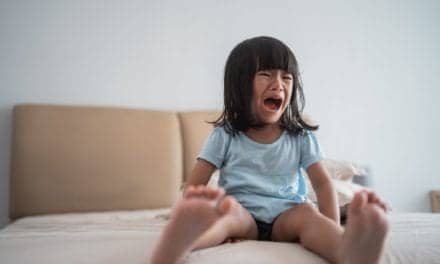Flinders University: Infants as young as 3-months-old may be more vulnerable to the effects of touchscreens.
Findings from the study reveal:
- Daytime touchscreen exposure is associated with marked decreases in nighttime sleep in older infants. Infants that were 13-months-old, on average, lost one minute of nighttime sleep for each minute of time they used a touchscreen during the day. Touchscreens were also associated with poorer sleep quality and more fragmented sleep with more nighttime awakenings.
- Watching television during the day was linked to shorter than average sleep duration. Three-month-old infants that watched 34 minutes of television during the day averaged 20 minutes less daytime sleep and 22 minutes less total sleep within 24 hours.
- Age plays a more substantial role when it comes to touchscreen exposure compared to television. Touchscreen exposure was more robustly associated with sleep than television exposure. A surprising finding showed the three-month-old infants given five minutes of time with a touchscreen device during the day averaged 13 minutes less daytime sleep. However, the findings also suggest a trade-off between daytime and nighttime sleep. The displacement of daytime sleep may promote longer sleep stretches at night.


